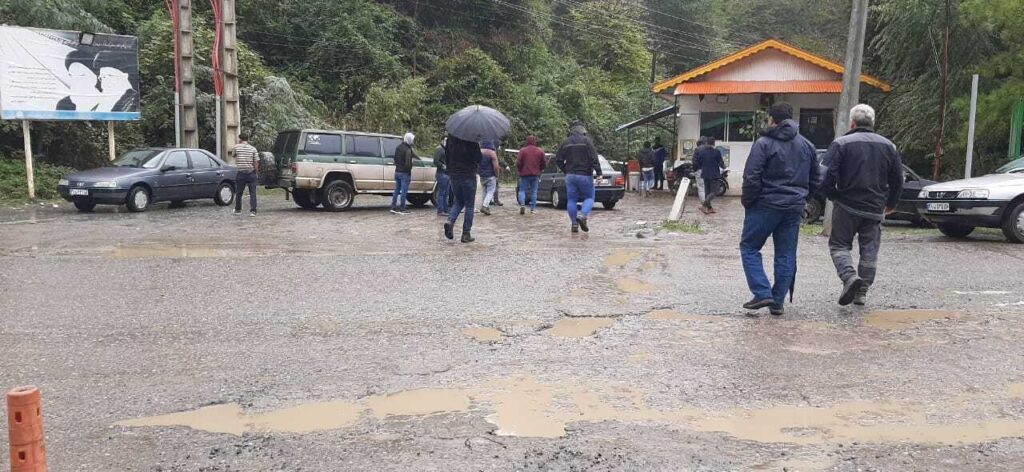
Amidst the continuing waves of industrial action and unrest sweeping across Iran, CODIR is issuing a call for a campaign of solidarity with the striking workers of the Shafarood dam and reservoir complex in the country’s northern Gilan province.
Workers there have been protesting for months for their long-overdue wages as well as urgent clarification on the future of the controversial dam project – which abuts one of the largest watercourses in the province – and their security of employment accordingly.
According to the state-run Iranian Labour News Agency (ILNA), workers at the Shafarood dam have stated that with the prolonged cessation of construction work, owing to the drying up of financial support for the project, about 900 long-time workers have been suspended and are now in complete limbo and unable to make ends meet – this despite the repeated un-kept promises of management to reopen the worksites and pay the wage arrears. For this reason, the workers have been forced to take industrial action and protest their poor treatment at the hands of their employers and the authorities.
Since 22 March 2021, the beginning of the Iranian New Year, officials have continued to make claims that financing of the dam project will soon resume and that they will be in a position to restart the construction works thereafter. However, these assertions have failed to pacify the workers, their families, and communities. On the contrary, the repeated statements have only served to underline their grave doubts that any such outcome really lies on the horizon as well as their well-founded suspicions that they are in fact being fed a line and strung out.
As the dispute has worn on, and the situation of the workers worsened, many of the strikers have gathered at the main entrance to the Shafarood complex to picket and draw attention to their plight. A contingent of the strikers have also taken to protesting outside the county governor’s office in the nearby city of Rezvanshahr, despite the real risk this carries of a fierce response from the security forces.

According to several of the striking workers interviewed in the ILNA report, one of the main factors to which they attribute the problems they face – the most serious being the non-payment of wages owed to them – is the drastic overhaul at management and contractor level at the complex in recent times and the disarray this has caused.
One worker told the ILNA: “We have not received our salaries for around six months now. We have toiled our shifts under the sun and the rain, yet today we have neither received our salaries nor do we have insurance. With this economic situation [Iran’s economy is in freefall and living standards in the country continue to decline sharply] and ever-rising inflation, our not being paid has made our situation even more unbearable and we are struggling to make ends meet.”
The protesting workers poignantly stated that they are living a continuous nightmare whereby they attend their workplace at what would ordinarily be the start-times of their shifts to see if progress has been made and whether the promises made to them by their employers and their backers in the local authorities have been honoured – ultimately, whether they can proceed to work and receive the outstanding payment of monies owed to them – only to be disappointed and left to wander until the next time they report for duty.
CODIR in supporting the protesting workers at the Shafarood dam calls upon the labour and progressive movement in Iran to stand in solidarity alongside the strikers and let them know that they are far from alone in their campaign and current predicament, as well as continually levy pressure upon the authorities to urgently intervene to ensure that all overdue wages are promptly paid out and that the uncertain situation regarding the dam project and its future are resolved properly and amicably.
CODIR also calls upon the labour and trade union movement internationally to draw attention to the increasingly fraught situation of the Shafarood dam workers, to demonstrate their solidarity in whatever way they can, and to make sure that the relevant Iranian authorities hear and understand the message that this is a situation which cannot be allowed to continue unchecked and that they are left under no doubt that the spotlight is being firmly shone upon them.












 Posted in
Posted in 











